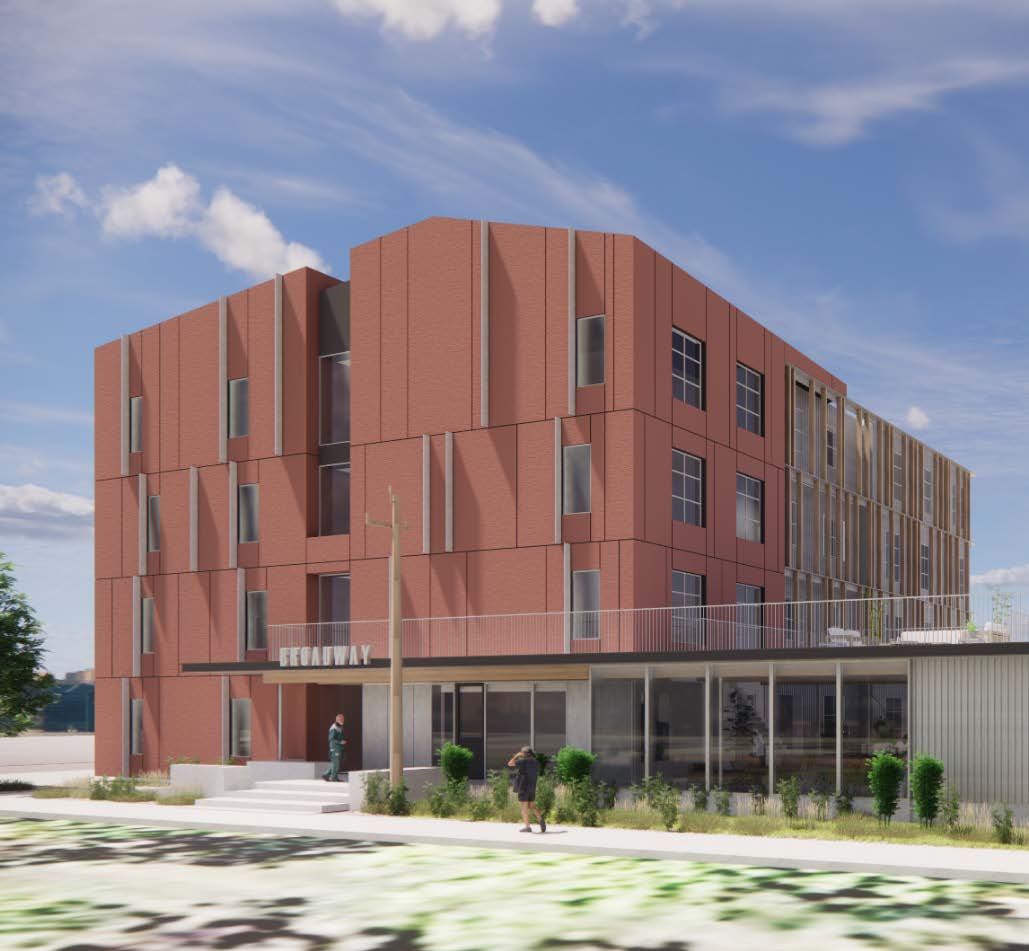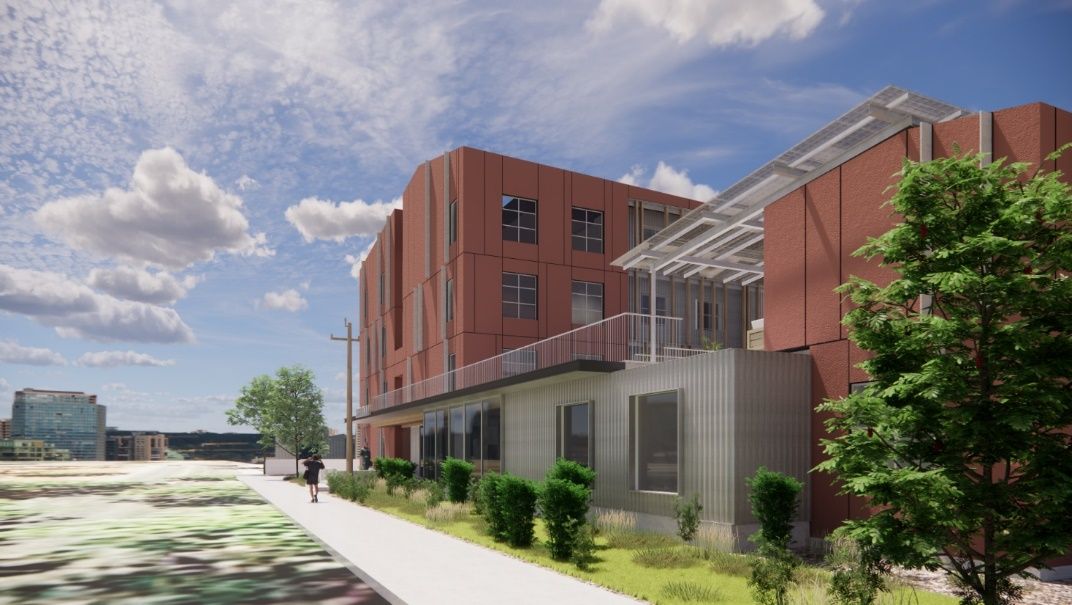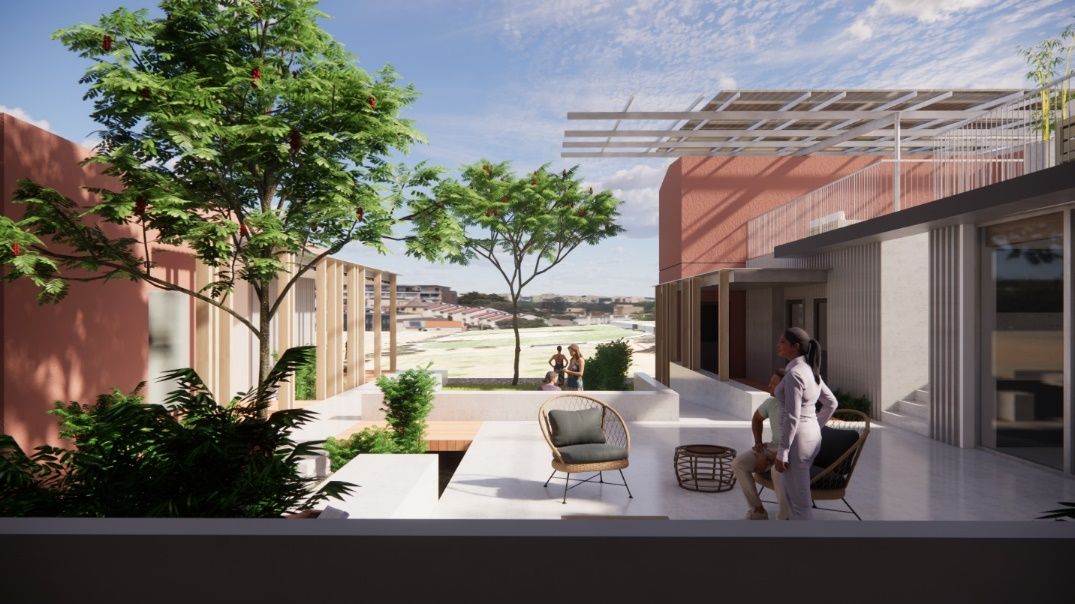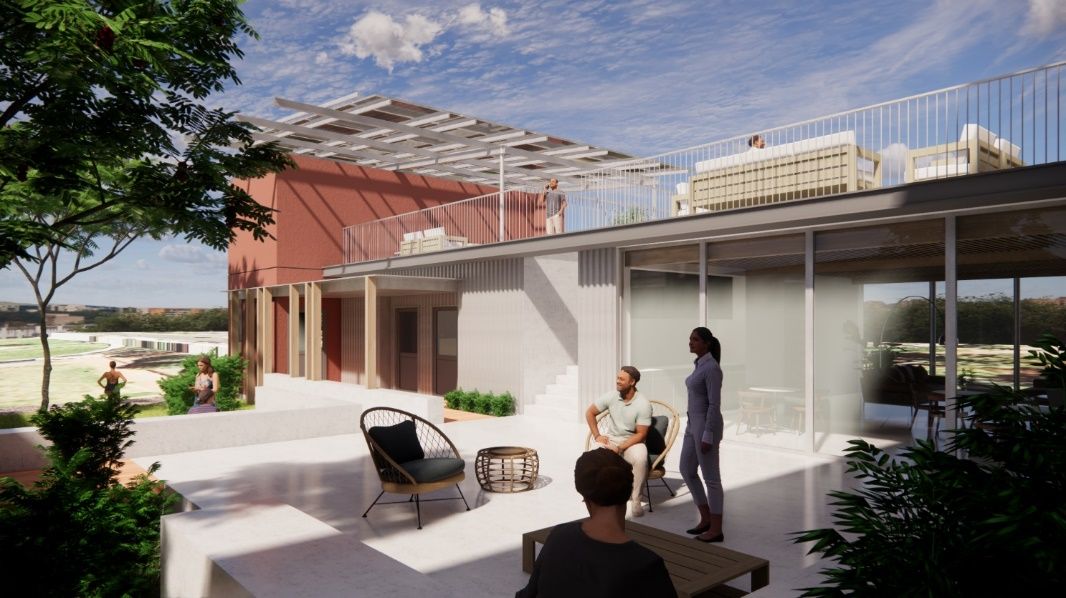VALLEJO – A plan to purchase a property in North Vallejo and turn it into a 48-unit supportive housing project with numerous support services was approved by the Vallejo City Council on Tuesday, despite continued opposition from some community members.
The controversial project has pitted Vallejo officials against the city of American Canyon, which has expressed concern with the proposed plan to build 47 studio apartments, each about 305 square feet, on a parcel of land near the border between the two cities. A 48th unit would be occupied by an onsite manager.
Councilmember Mina Loera-Diaz, District 3, a staunch supporter of the project, said she represents the interests of Vallejo residents.
“I just have to wonder, and I’m going to say it, would people be so adamant and so vocal if it wasn’t next to American Canyon,” Loera-Diaz asked during Tuesday’s meeting. “We owe it to our residents to have a location where they can live and have a chance at life.”
The council approved three separate items Tuesday, including declaring that the project is statutorily exempt from the California Environmental Quality Act (CEQA) review. Such review provides government officials and the public with information about the possible environmental impacts of a proposed project.
City officials maintain that since the project is being funded with Project HomeKey money, CEQA review isn’t required. The council accepted $12 million in state funds last month to build the housing project on Broadway Street. Vallejo was one of five municipalities recently awarded Project HomeKey funds, a $1.45 billion state program to house people without shelter or at risk of experiencing homelessness.
Prior to the June 7 city council meeting, American Canyon sent a letter accusing Vallejo leaders of violating the Brown Act, the state’s open meeting law, alleging the city failed to provide sufficient information as to what action the council was being asked to take. The city of American Canyon also disputed Vallejo's interpretation of CEQA regarding the project.
The council also approved an affordability covenant which places a deed restriction on the property ensuring it is used as a permanent supportive housing project for at least 55 years.
Finally, the council authorized City Manager Mike Malone to sign an acquisition agreement that allows the city to acquire the property once the project is built. The Castro Valley nonprofit Firm Foundation Community Housing will purchase the project property prior to construction and will transfer it at “no cost” to the city once complete.
It wasn’t immediately known how much the property would be sold for. A previous city agenda listed the price at $600,000 but the item passed on Tuesday did not define a price. City officials did not respond to questions about the price to be paid for the property.
The modular housing units would be supplied by Factory_OS, which is located on Mare Island. Nonprofit Shelter Inc. is set to provide an onsite property manager who will live in the building. Shelter Inc. managed the city’s Project RoomKey for the final three months of that program, which was intended to help vulnerable homeless people by giving them hotel rooms to stay in during the height of the COVID-19 pandemic.




The Broadway project is designed to include a courtyard, community room, and access to a rooftop deck. An operations agreement between the city and Shelter Inc. is scheduled to go before the council in the fall with tenants expected to move in early next year.
District 6 Councilmember Cristina Arriola voted against all three actions. She was joined by Mayor Robert McConnell, who voted against the deed restriction and purchase of the property. But he did vote with the rest of the council in declaring the project exempt from CEQA review.
Arriola said she had concerns with the project.“They all center around the funding. It has nothing to do with the location of putting a project of this size, that’s much needed, in the neighborhood,” she said. “The numbers aren’t making any sense to me.”
Arriola said the grant money was not being put to its best use, stating it was supposed to be used as a way to repurpose buildings.
Opponents argue the project will hurt economic development in the area and create even more problems by attracting people experiencing homelessness to the neighborhood. They also said the budget didn’t include all the necessary information to ensure successful construction of the project and some have inquired if the city has included a budget for security services.
Margaret Sharkey, one of the main critics of the project, spoke out about several issues, including the affordability covenant.
“It should be scrutinized carefully for the benefit of limiting liability and cohesiveness for the next five and a half decades,” she said,
Sharkey said the project was lacking transparency as city officials engaged in “doublespeak.”
“City council is misleading its residents, as accepting the Homekey funds is accepting the project,” she added. “The city of Vallejo has reaffirmed the public’s perception of their lack of representation, and lack of transparency in the Homekey site selection. Vallejo residents had no voice in the process.”
Vallejo resident Anne Carr, who also opposes the project, called out Richard and Emily Fisher, who own the half-acre lot. The Fishers supported Councilmember Hakeem Brown’s election campaign.
“There’s an appearance of impropriety in buying a parcel from the campaign team that worked on one of the city councilmember’s campaigns,” Carr said. “Particularly when we didn’t consider any other locations, I think that’s a real ethical concern.”
Thirty seconds after Carr made those statements Brown called for a “point of order.” He explained that the Fishers had no formal role with his campaign. McConnell overruled the point of order.
The Fishers, who also run the nonprofit 4th Second, bought the land for about $540,000 in April 2021. The land was appraised at $605,000 this past February.
Carr also provoked a response from Loera-Diaz when she questioned if the city had looked at other locations.
“We have looked at several buildings. We have looked at land. We have looked at hotels. We have been looking everywhere that we possibly can,” Loera-Diaz said. “We are tired, just like everybody else, of seeing people living on the streets; not so much because they are a nuisance, even though a lot of people consider them a nuisance, but because there are families and children living on our sidewalks.”
While supporting the project, Brown called the area a “dynamic neighborhood” and said he wanted local residents and businesses to be involved and have an ability to provide feedback with the project moving forward.
“I think somehow setting up some type of conduit between the community and the development, just so that there is some kind of feedback, so the community can share their concerns,” Brown said.
The strongest opposition came from McConnell, who said the project was equivalent to redlining, a discriminatory practice which attempts to steer certain ethnic groups, particularly Black people, to a certain area. McConnell said that projects like the Broadway one needed to be spread throughout the city and not concentrated in a certain area. He also said every new housing project should include affordable housing units.
“If we look at our affordable housing units in the city of Vallejo, they are almost all concentrated west of the freeway and almost all from Amador [Street] over,” McConnell said. “This is just another repeat of the same process and, to me, this is the same as redlining, and I find it repulsive."
Before you go...
It’s expensive to produce the kind of high-quality journalism we do at the Vallejo Sun. And we rely on reader support so we can keep publishing.
If you enjoy our regular beat reporting, in-depth investigations, and deep-dive podcast episodes, chip in so we can keep doing this work and bringing you the journalism you rely on.
Click here to become a sustaining member of our newsroom.
THE VALLEJO SUN NEWSLETTER
Investigative reporting, regular updates, events and more
- Housing
- government
- Vallejo
- Vallejo City Council
- Vallejo City Hall
- American Canyon
- CEQA
- Project HomeKey
- Mike Malone
- Firm Foundation Community Housing
- Factory_OS
- Shelter Inc.
- Cristina Arriola
- Robert McConnell
- Margaret Sharkey
- Anne Carr
- Richard Fisher
- Emily Fisher
- 4th Second
- Hakeem Brown
- Mina Loera-Diaz

John Glidden
John Glidden worked as a journalist covering the city of Vallejo for more than 10 years. He left journalism in 2023 and currently works in the office of Solano County Supervisor Monica Brown.
follow me :




